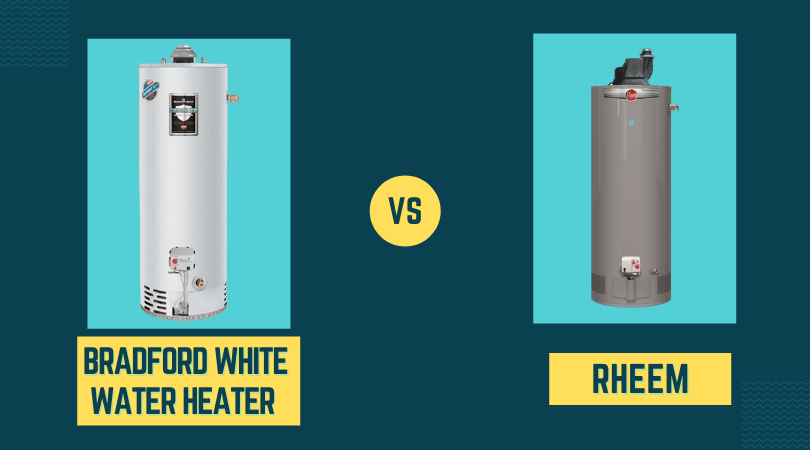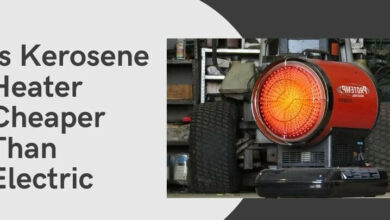Pros and Cons of Indirect Water Heater – Thing to Look After Before Buying

Water Heaters are among the essential things required in modern society. If you are the one who is already irritated by the several DHW (Domestic Hot Water System) available in the market, then this blog will help you find the ideal solution. We don’t deny that it is often challenging to handpick the best system out of an Indirect Water Heater and Tankless coil. To understand which is better, first of all, we have to know how they work.
How Indirect Water Heater Function?
The Indirect Water Heater uses the boiler or main furnace to heat the fluid that is flowing through a heat exchanger in the storage tank. The water tank that stores energy makes the furnace turn off, which in turn saves energy. If an efficient boiler and well-insulated tank are used, it can be the least expensive means of providing hot water. What else do you need? The indirect system can be fired by gas, electricity, oil, propane, solar energy, or a combination of any of these.
How Does the Tankless Coil Function?

The Tankless Water Heater, as the name suggests, provides hot water without a tank. When a water heater is turned on a faucet, the water flows through a heat exchanger or heating coil located in the boiler or furnace. As they are dependent on a boiler or furnace to heat the water directly, they work best during the chilling weather. The Tankless system is typically electric, oil, or gas-fired.
Before investing, you should always explore both sides of the coin. And water heaters take away a good portion of your pay. Let us explore and check which system will be worth your payment.
Pros and Cons of Indirect Water Heater
Benefits of the Indirect Water System
- Inexpensive: They can save your lot of money in the long run as they take advantage of an existing heating source.
- Less Maintenance: They require very little maintenance. They come with a life tank warranty.
- Better Performance: Surely, you will get constant hot water and better performance because of its larger boilers.
- Fewer Lines: The Indirect Water Heater does not need a separate gas line.
- Ample Storage: You can store immense amounts of water in the tank. This means you will get water whenever you want.
- Durability: Indirect Water Heaters are likely to last longer. They are made of Stainless Steel, which ensures a longer life span.
Negative Aspects of an Indirect Water Heater
- Feasibility: The Indirect Water Heaters are not feasible in an old house as forced-air furnaces will not heat the exchange pipes.
- Poor choice: If you do not have many people in your home, then you don’t need much hot water, Indirect Water Heater may not be the best choice there.
Things to Consider Before Buying Indirect Water Heaters

No matter which system you choose, Indirect Water Heater or Tankless, there will always be various costs and benefits to consider. Even if you choose a combination system, you must keep in mind the cost of extra pipings and pumps, electricity to run the system in the end, and it must be worth the long run.
Benefits of Tankless Water Heaters
- Lighter on pocket: Tankless Water Heaters have a better service life; hence they are a money saver for the long run.
- Compact: They do not require much space as compared to storage tank water systems. They can be easily mounted on a wall.
- Limitless Hot Water: Your water tank will now not decide how much longer your shower should be. They are capable of producing hot water limitlessly.
- Easily Replaceable: Its parts are designed in such a way that it can be easily repaired.
Negative Aspects of Tankless Coil
- Initial Price: They are expensive upfront. It costs three times more than a tank system.
- Limitations: May provide inconsistent performance if used simultaneously.
Comparison
- The primary difference is the presence or absence of the tank.
- If we consider the energy-efficiency standpoint, both the systems are equal.
- Both are equal in terms of the quality of the equipment.
- Usually, water heaters come with 10 to 12 years of warranty while Indirect water heaters will last from 8 to 20 years.
- Tankless Water Heaters may show inconsistency in the hotness of the water per minute, while Indirect Water Heater ensures limitless hot water per minute.
- An Indirect Water Heater is the best option for a busy home, while Tankless Water Heater is more suitable for smaller residences.
The Bottom Line
There are many advantages and disadvantages to both systems. Believe us when we say you must be very careful while choosing the system and consider the above points before purchasing the one that is ideal for your requirement because it may cost double the price to replace the whole setup. We have kept all the points to consider on the table—all you have to do is crosscheck with your requirements. We hope you experience a happy hot shower!




